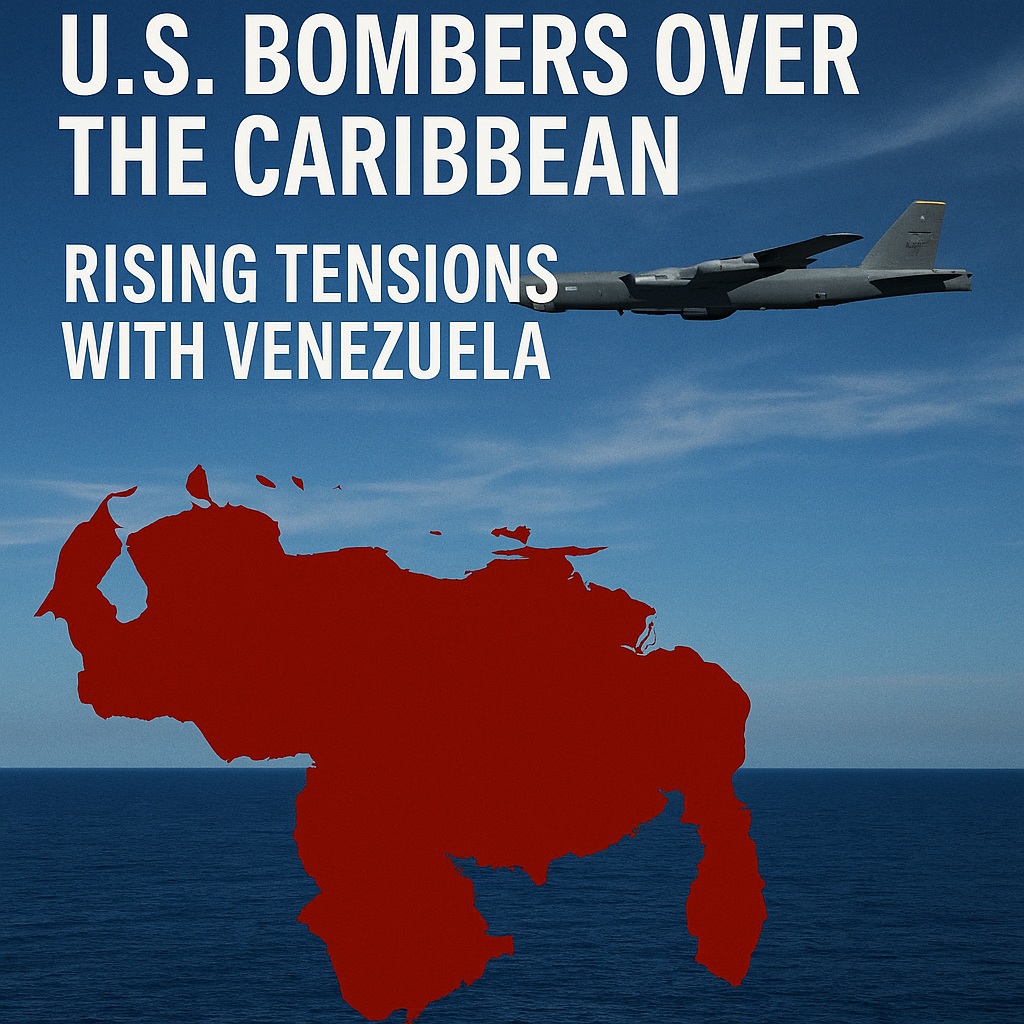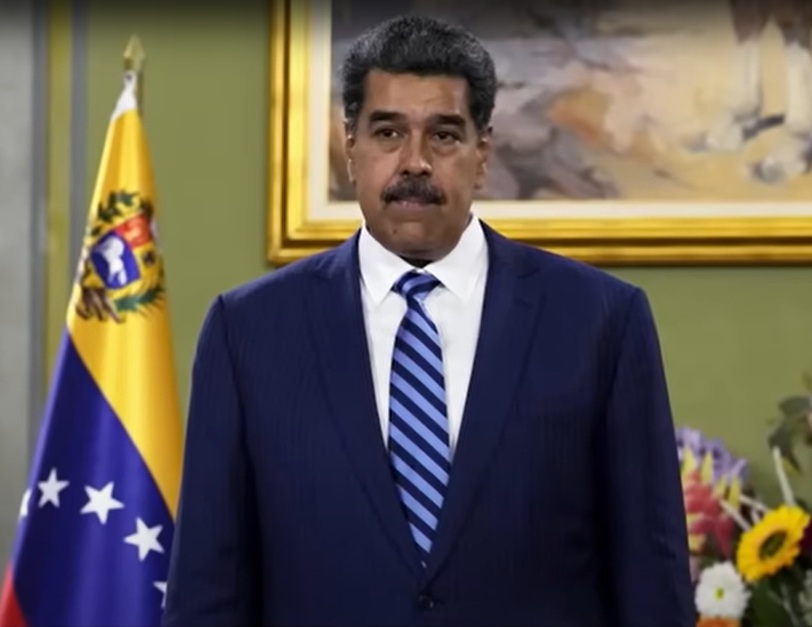
By StMaartenNews.com Editorial Staff
Based on reporting by Tom Clifford
PHILIPSBURG — The Caribbean region is once again at the center of global attention as the United States confirms it has authorized covert operations inside Venezuela and deployed B-52 Stratofortress bombers over the Caribbean Sea, raising fears of renewed U.S. military intervention in Latin America.
The development follows U.S. President Donald Trump’s confirmation that he approved CIA involvement in Venezuela, a move that has drawn sharp condemnation from Venezuelan President Nicolás Maduro and sparked concern among regional governments about possible military escalation.
B-52s Conduct Strategic Flights Near Venezuelan Airspace
According to reports from Curaçao and regional media, two B-52 bombers—identified by call signs BUNNY01 and BUNNY02—were tracked in real time by thousands of users on civilian flight radar platforms. The aircraft reportedly departed from Barksdale Air Force Base in Louisiana and flew over the Caribbean Sea, staying within international airspace but near Venezuelan territorial boundaries.
Observers note that the U.S. military used similar show-of-force flights prior to the 2003 invasion of Iraq.

Covert Operations and “Regime Change” Fears
Trump’s public acknowledgment that the CIA is operating in Venezuela has reignited debate over U.S. policy toward Caracas. Speaking from the White House, he said the authorization was driven by two factors:
“They have emptied their prisons into the United States,” Trump stated, “and a lot of drugs are coming in from Venezuela through the sea. We’re going to stop them by land also.”
The President declined to say whether the CIA’s mission includes efforts to remove Maduro from power, though the U.S. has previously offered a $50 million bounty for information leading to the Venezuelan leader’s capture.
Naval Build-Up and Caribbean Tensions
Approximately 10,000 U.S. troops are currently deployed in the Caribbean region, including personnel stationed in Puerto Rico and aboard eight warships, one of which is nuclear-powered. The U.S. has also positioned fighter jets and a submarine in what the White House describes as an operation against drug trafficking.
In recent weeks, U.S. forces have reportedly targeted suspected drug-carrying vessels in the Caribbean, resulting in at least 27 deaths. U.N. human rights experts have labeled these incidents as possible “extrajudicial executions.”
Despite U.S. claims that the operations constitute a “non-international armed conflict” with drug-trafficking organizations, analysts in the region view them as part of a broader campaign to weaken Maduro’s government.

Maduro Responds: “No to War, Yes to Peace”
In a televised address, President Maduro denounced the U.S. actions as a new form of imperial aggression.
“No to regime change, which reminds us of the endless, failed wars in Afghanistan, Iraq, and Libya,” Maduro said. “No to CIA-orchestrated coups d’état. Listen to me: no war, yes peace, the people United States.”
Maduro also ordered military exercises in the Caracas suburb of Petare and in Miranda state, mobilizing soldiers, police, and civilian militias “to defend the oil-rich nation.”
Venezuelan Foreign Minister Yván Gil condemned what he called the “warmongering and extravagant statements” from Washington.
Regional Implications for the Dutch Caribbean
The standoff has prompted unease across the Dutch Caribbean—particularly in Aruba, Curaçao, and Bonaire, located less than 100 kilometers from Venezuela’s coast. Local observers warn that any escalation could pose significant risks to regional stability, trade, and tourism.
Analysts also point out that under international maritime law, U.S. naval actions in the Caribbean—if conducted outside of “hot pursuit” scenarios—could raise legal questions under the U.N. Convention on the Law of the Sea, to which the U.S. is not a signatory.
Echoes of Iraq
Critics draw parallels between the current U.S. posture toward Venezuela and the 2003 invasion of Iraq, which was justified on false claims of weapons of mass destruction.
“The phrase ‘regime change’ is back on Washington’s agenda,” one regional diplomat said. “And that should alarm everyone in the Caribbean.”
As tensions mount, Caribbean leaders are calling for restraint and renewed diplomatic dialogue to prevent the region from becoming the next battleground in a new Cold War between Washington, Beijing, and Moscow.
###
Related articles:
U.S. Military Intervention – A Historical Overview
Follow the debates online on our Facebook pages at:
Facebook.com/StMaartenNewsDotCom
Facebook.com/StMaartenNewsOnline
###
ADVERTISEMENT












